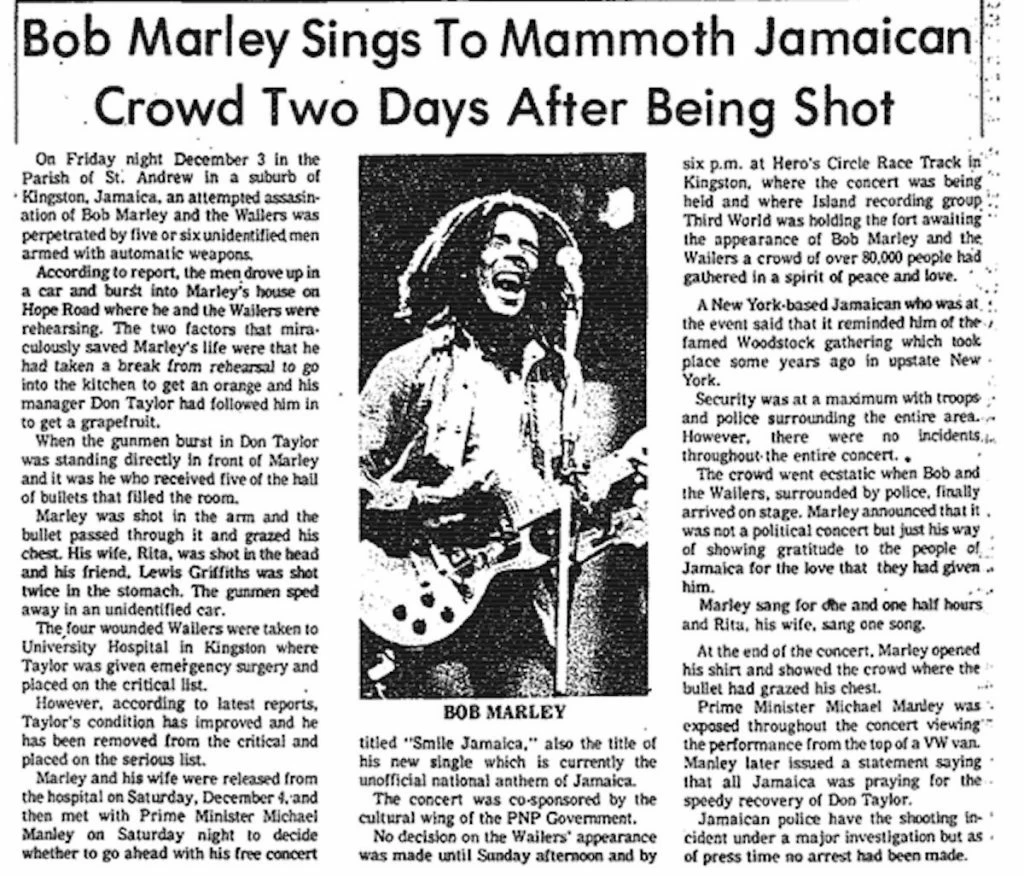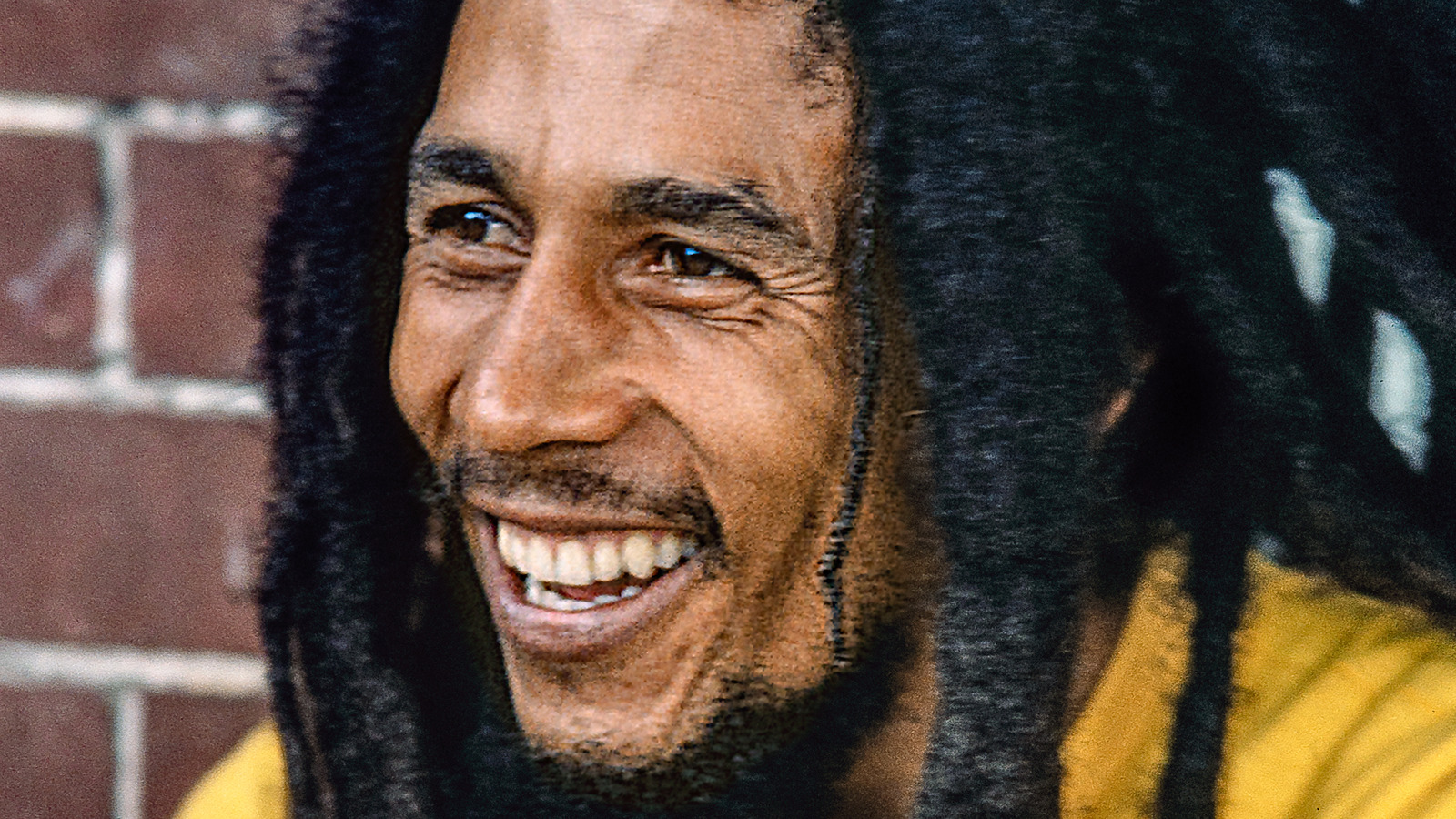Bob Marley death is a topic that has intrigued fans and music lovers worldwide for decades. The legendary reggae icon left an indelible mark on the world, and his passing in 1981 sent shockwaves across the globe. But what exactly happened? Was it just cancer, or were there more complex factors at play? In this article, we'll delve deep into the circumstances surrounding his death, exploring both the facts and the myths that have emerged over time. So grab your favorite drink, sit back, and let’s uncover the truth together.
Bob Marley wasn’t just a musician; he was a cultural icon, a symbol of peace, love, and resistance. His music transcended borders, bringing people together through its universal messages. However, behind the fame and glory lay a tragic story of illness and untimely demise. Understanding how and why Bob Marley died requires us to examine not only his medical history but also the context of his life and times.
As we explore this topic, we’ll touch on everything from his diagnosis to the treatments he underwent, and even some of the controversies surrounding his final days. This isn’t just a story about death—it’s a tribute to a man whose music continues to inspire millions around the world. Let’s dive in!
Read also:Unveiling The Future A Journey Into What Lies Ahead
Table of Contents
- Bob Marley Biography
- The Cause of Bob Marley's Death
- Bob Marley's Medical History
- How the Diagnosis Was Made
- Treatment Options Explored
- Controversies Surrounding His Death
- Bob Marley's Legacy After Death
- Impact on Reggae Music
- Lessons Learned from Bob Marley's Story
- Conclusion: Remembering Bob Marley
Bob Marley Biography
Before we get into the specifics of Bob Marley death, it’s important to understand who he was as a person. Born on February 6, 1945, in Nine Mile, Saint Ann Parish, Jamaica, Robert Nesta Marley grew up in a world filled with challenges and hardships. His mixed-race heritage—his father was a white Jamaican of English descent, while his mother was Afro-Jamaican—made him an outsider from a young age. Yet, it was this unique background that shaped his worldview and fueled his passion for music.
Bob Marley’s journey in music began in the late 1950s when he moved to Kingston and started working with local producers. By the early 1970s, he had become a global sensation with hits like “No Woman, No Cry” and “Get Up, Stand Up.” His music spoke to the struggles of the oppressed, advocating for equality and justice. But beneath the surface, there were signs of a looming health crisis that would eventually claim his life.
Bob Marley's Personal Information
| Full Name | Robert Nesta Marley |
|---|---|
| Date of Birth | February 6, 1945 |
| Place of Birth | Nine Mile, Saint Ann Parish, Jamaica |
| Occupation | Singer, Songwriter, Guitarist |
| Years Active | 1963–1981 |
The Cause of Bob Marley's Death
Now, let’s address the elephant in the room—what exactly caused Bob Marley death? The official cause was acral lentiginous melanoma, a rare form of skin cancer. It first appeared as a small wound on his toe, which he initially dismissed as a soccer injury. However, the cancer had already spread by the time it was diagnosed, making treatment incredibly challenging.
Some people might wonder why someone as famous and wealthy as Bob Marley didn’t catch the cancer earlier. Well, part of the issue was his belief in Rastafarian principles, which emphasized natural remedies over modern medicine. This delayed conventional treatment, allowing the disease to progress unchecked. By the time he sought medical help, it was too late.
Bob Marley's Medical History
Bob Marley’s medical history provides crucial insights into his death. He was first diagnosed with melanoma in 1977 after noticing a dark spot on his big toe. Doctors advised him to have the toe amputated to prevent the cancer from spreading. However, Bob refused, citing both religious and personal reasons. Instead, he opted for alternative treatments, including herbal remedies and dietary changes.
Read also:Ondemandcontent Revolutionizing The Way We Consume Media Today
Over the next few years, the cancer continued to spread, affecting his lungs, liver, and brain. Despite undergoing aggressive chemotherapy and other treatments, his condition worsened. By early 1981, it was clear that Bob was fighting a losing battle. On May 11, 1981, he passed away at the age of 36 in a hospital in Miami, leaving behind a legacy that continues to inspire generations.
Key Points About His Medical Journey
- First diagnosed with melanoma in 1977
- Refused amputation due to personal beliefs
- Explored alternative treatments before conventional medicine
- Cancer metastasized to multiple organs
How the Diagnosis Was Made
The diagnosis of Bob Marley’s melanoma came after a series of tests conducted by medical professionals. Initially, doctors thought the lesion on his toe was a minor injury, possibly caused by playing soccer. However, further examination revealed that it was actually a malignant tumor. Melanoma, especially the acral lentiginous type, is notoriously difficult to detect early, which contributed to the delay in diagnosis.
Once the diagnosis was confirmed, doctors warned Bob about the seriousness of the situation. They explained that without immediate intervention, the cancer could spread rapidly. Unfortunately, Bob’s decision to avoid amputation and conventional treatment meant that the cancer had ample time to invade other parts of his body.
Treatment Options Explored
When it comes to Bob Marley death, one question that often arises is whether different treatment options could have saved him. In theory, yes—if he had agreed to the amputation and followed up with aggressive chemotherapy, he might have had a better chance of survival. However, Bob’s commitment to his beliefs made him hesitant to pursue these options.
Instead, he turned to alternative therapies, such as the Gerson Therapy, which involves a strict diet and juicing regimen. While some people swear by these methods, there’s no scientific evidence to support their effectiveness against advanced melanoma. By the time Bob finally sought conventional treatment, the cancer had already reached stage IV, making recovery almost impossible.
Alternative vs. Conventional Medicine
- Gerson Therapy focused on diet and natural remedies
- Conventional treatment included chemotherapy and surgery
- Lack of early intervention allowed cancer to spread
Controversies Surrounding His Death
No discussion about Bob Marley death would be complete without addressing the controversies that have swirled around it over the years. Some conspiracy theories suggest that his death was not due to natural causes but rather a targeted assassination. These theories point to his involvement in politics and his outspoken stance against oppression as possible motives for foul play.
While there’s no concrete evidence to support these claims, they persist in certain circles. Others argue that his refusal to undergo amputation was more about pride than religion, suggesting that he didn’t want to be seen as weak or vulnerable. Regardless of the truth, what’s undeniable is that Bob Marley’s death remains a topic of fascination and debate.
Bob Marley's Legacy After Death
Even though Bob Marley death occurred over four decades ago, his influence continues to resonate with people worldwide. His music has inspired countless artists, and his messages of love, unity, and resistance remain as relevant today as they were during his lifetime. Posthumously, he has been honored with numerous awards and accolades, cementing his status as one of the greatest musicians of all time.
One of the most touching tributes to Bob came in the form of the annual One Love Peace Concert in Jamaica, which he helped organize before his passing. The event brought together political rivals and promoted harmony in a country plagued by division. It’s a testament to Bob’s vision of a better world, a vision that lives on through his music and legacy.
Impact on Reggae Music
Bob Marley’s impact on reggae music cannot be overstated. Before him, reggae was largely confined to Jamaica and its neighboring islands. Bob took the genre global, introducing it to audiences in Europe, North America, and beyond. His fusion of traditional reggae rhythms with elements of rock, soul, and pop created a sound that appealed to a broad audience.
After his death, reggae continued to evolve, with artists like Peter Tosh and Bunny Wailer carrying the torch. However, no one has matched Bob’s ability to blend music with activism, creating a powerful vehicle for social change. His influence can still be heard in the works of modern reggae artists, proving that his legacy endures.
Lessons Learned from Bob Marley's Story
As we reflect on Bob Marley death, there are several lessons we can take away. First and foremost, the importance of early detection cannot be overstated. Had Bob sought medical help sooner, he might have stood a better chance of surviving. Secondly, the balance between traditional and modern medicine is crucial. While alternative therapies can complement conventional treatments, they shouldn’t replace them entirely.
Finally, Bob’s life and death serve as a reminder of the power of music to transcend boundaries and bring people together. His messages of love, peace, and justice continue to inspire millions, proving that true art has the power to outlive its creator.
Conclusion: Remembering Bob Marley
In conclusion, Bob Marley death was a tragic loss for the world, but his legacy lives on through his music and the ideals he championed. From his humble beginnings in Jamaica to his status as a global icon, Bob’s journey was nothing short of remarkable. While the circumstances surrounding his death may be debated, one thing is certain—his impact on the world will never fade.
So, what can you do to honor Bob Marley’s memory? Start by listening to his music, learning about his life, and sharing his messages with others. You can also support organizations that promote peace, equality, and justice, causes that were close to Bob’s heart. Together, we can ensure that his spirit continues to inspire future generations.
Feel free to leave a comment below or share this article with your friends. And don’t forget to explore our other content for more insights into the world of music and culture. Until next time, keep the rhythm alive!


